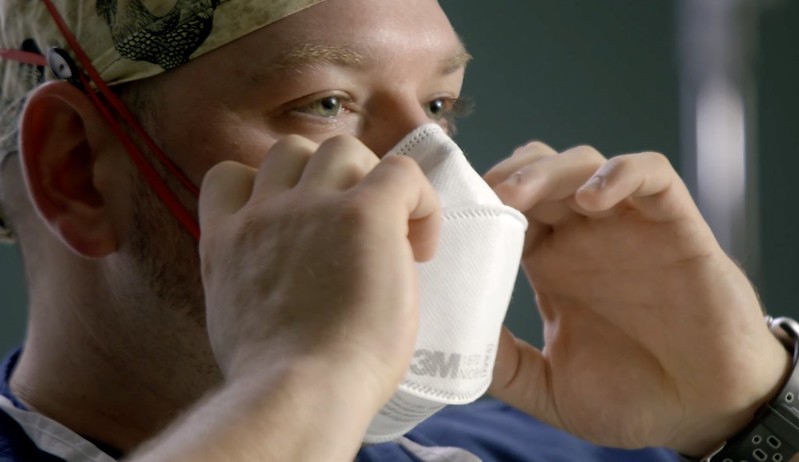 Governor Tom Wolf / Flickr cc
Governor Tom Wolf / Flickr cc
The National Association of County and City Health Officials (NACCHO) yesterday released its 2024 Forces of Change Survey report that found that more and more local health departments are losing staff through layoffs or attrition, raising concerns about a shrinking public health safety net.
The study spotlights experiences of health departments at the county, city, and district level, including staffing and budget changes, health department governance, use of public health fellowship and training programs, the roles of public health nurses, program evaluation capacity, and activities that address the infectious disease consequences of substance use. Of 1,200 local health departments invited to complete the survey from March to June 2024, a total of 667 (56%) responded.
"The latest findings highlight critical trends and challenges faced by local health departments during a time of uncertainty in the local public health landscape," NACCHO said in a news release.
1 in 5 local health departments note job losses
The survey found that, in 2023, 19% of local health departments reported job losses—an increase from 14% in 2021 and 17% in 2022. The rate rose to nearly 40% among large local health departments. Also, 17% of local health departments reported budget cuts during fiscal year (FY) 2024, with 23% anticipating cuts in FY2025.
The latest findings highlight critical trends and challenges faced by local health departments during a time of uncertainty in the local public health landscape.
In addition, 90% of local health departments reported that nurses are involved in health promotion and protection; 72% said they are involved in emergency preparedness, disaster recovery, and cross-sector collaboration; and 41% reported that nurses contribute to policy and advocacy work.
NACCHO also reported, "In 2024, 84% of local health departments reported having programs with an evaluation component. While most incorporated evaluation into their work, nearly 60% reported challenges due to insufficient staff time or capacity."
NACCHO added, "Overall, few local health departments had individuals from training and fellowship programs assigned to their agency, which puts future workforce development at risk." NACCHO represents more than 3,300 local health departments.
Cambodia's health ministry today announced another human H5N1 avian flu case of the year, involving a 5-year-old boy from Kampot province who is hospitalized in the intensive care unit, according to a Facebook statement translated and posted by Avian Flu Diary, an infectious disease news blog. The country has reported an uptick in human cases since late 2023, but illnesses have accelerated recently, with 9 reported since early June and 12 so far in 2025. In the latest case, investigators found that the boy's family had a flock of 40 chickens, a few of which were sick or had died. The boy reportedly played with the chickens every day. Kampot province is in the far southern part of Cambodia. H5N1 is known to circulate in Cambodian poultry, and a new reassortant is circulating that contains genes from an older Cambodian clade and genes from the global 2.3.4.4b clade. Human cases in Cambodia typically involve contact with poultry, and illnesses involving the older clade or the new reassortant are often severe or fatal. .jpg) Jupiterimages
Jupiterimages
Boy known to play with backyard poultry
The National Association of County and City Health Officials (NACCHO), with support from the Centers for Disease Control and Prevention (CDC), yesterday announced it is awarding $356,000 to support local health departments in implementing and expanding wastewater monitoring to track disease trends and emerging health threats in their communities. NACCHO selected five local health departments as mentors and 11 local health departments as mentees for the 2025 Wastewater Monitoring Mentorship Program, which is now in its fourth year. This year, NACCHO emphasized including rural health departments because of unique barriers that rural communities may face in analyzing wastewater. "The goal of the mentorship program is to ensure that local health departments have the support necessary to start or expand wastewater monitoring programs that fit the needs of the communities they serve," NACCHO said. Mentors are local health departments that have demonstrated experience in using wastewater monitoring. They are paired with local health departments that are in the early stages of developing wastewater monitoring. The goal of the mentorship program is to ensure that local health departments have the support necessary to start or expand wastewater monitoring programs. Mentor awardees include health departments in California, Massachusetts, Nebraska, and Texas (2 departments). Mentees are in Alaska, California (3 departments), Iowa, Ohio, Missouri, Texas (3 departments), and West Virginia. NACCHO represents more than 3,300 local health departments across the United States. Bilanol / iStock
Bilanol / iStock
Key support for local health departments
After emerging as an mpox hot spot giving the virus a worrisome foothold in West Africa, cases have declined in Sierra Leone over the past 6 weeks, part of an overall encouraging trend in Africa's outbreaks, a top official from Africa Centres for Disease Prevention and Control (Africa CDC) said today at a weekly briefing. Yap Boum, PhD, MPH, deputy incident manager for Africa CDC's mpox response, said the case positivity in Sierra Leone last week showed a slight downward trend, a sign that the involvement of more community healthcare workers is having some success at identifying infections occurring outside of hospital settings. He also noted that Sierra Leone is having success pairing contact tracing with mpox vaccination, which he said is very efficient. Meanwhile, Uganda has reported a slight rise in the past 3 weeks, which Boum said is expected given that the country is providing greater support for contact tracers. Over the past week, infections in Uganda, Sierra Leone, and Zambia made up 88% of confirmed cases in Africa. Boum said though plenty of Bavarian Nordic mpox vaccine is available for purchase, there are no funds for UNICEF and other providers to buy more doses to allocate to countries. He added that the supply shortage comes at a bad time, as African countries make headway with their outbreaks and have seen good uptake in affected populations. "This is a challenge, this is a crisis," Boum said. "This is an imperative of equity.".jpg) Photo courtesy f Bavarian Nordic
Photo courtesy f Bavarian Nordic
Funds for vaccine purchases dry up
Our underwriters
Unrestricted financial support provided by








 English (US) ·
English (US) ·